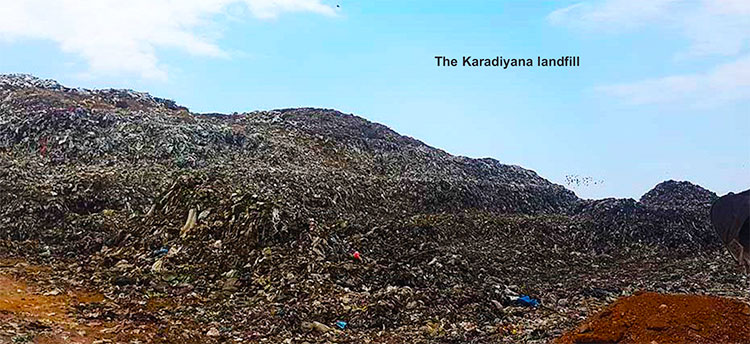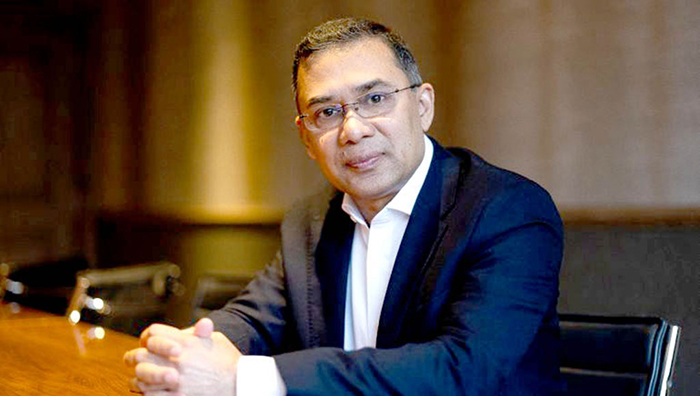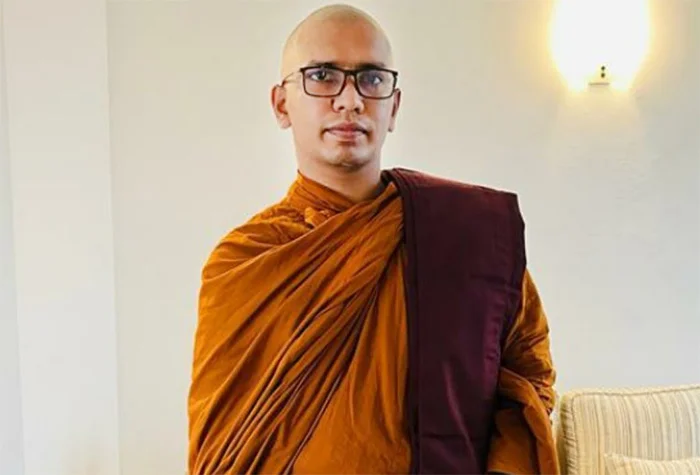Opinion
Support move to generate electricity from garbage

There had been several letters in the press where the Minister for Power, Dallas Alahapperuma, has enthusiastically declared to achieve 70% of power from Renewable Sources by the year 2030, without knowing the capability and the resources available with the CEB, and the time taken to provide transmission lines to connect the national grid, if international tender procedure is adopted or even otherwise.
I recall a letter sent to the press earlier, wherein I have stated, the garbage problem in Colombo is talked of as an urgent matter, but no action taken for over four decades, and the situation is getting worse day-by-day. The Colombo Municipal Council had once initiated action to set up an incinerator and there had been proposals from interested parties willing to undertake it, but for some unknown reason, these have been shelved by CMC or any other authority concerned.
A report submitted by an internationally famous foreign firm of consultants, Lahmeyer International of Germany, which produced a Master Plan for the Ministry for Power and Energy, touched on the possibility of setting up of an incinerator plant to serve a dual purpose – to eradicate the garbage problem and generate electricity.
 What action the Ministry for Power or the CEB has taken is not known. It may be that the CEB has taken action to implement other recommendations and but did not pursue this matter with the CMC. The plant could also produce compost manure and reduce the foreign exchange spent on importing fertilisers. In this well compiled, meaningful and workable report, it is stated: “The incinerator plants use garbage to produce electricity. They are similar to conventional coal fired steam plants, but require elaborate refuse feeder, grate, firing and air quality control system. Also, the required land area is greater.
What action the Ministry for Power or the CEB has taken is not known. It may be that the CEB has taken action to implement other recommendations and but did not pursue this matter with the CMC. The plant could also produce compost manure and reduce the foreign exchange spent on importing fertilisers. In this well compiled, meaningful and workable report, it is stated: “The incinerator plants use garbage to produce electricity. They are similar to conventional coal fired steam plants, but require elaborate refuse feeder, grate, firing and air quality control system. Also, the required land area is greater.
“Some two million people live in the Greater Colombo area, and the amount of garbage collected annually could be about 600 tons. About 65% is made up of organic substances. The garbage is at present dumped on marshy lands in the vicinity of Colombo for the purpose of land reclamation, that practice caused environmental problems [i.e., smells and ground and surface water pollution.]
“The average heat content of the garbage is not exactly known, but based on the few tests done, it may be in the region of 8 Joule per ton, compared with 40 to 45 Joule per ton of oil. Hence, the fuel saving potentially achievable with an incinerator plant could be 100,000 tons of oil per year [under 1988 conditions] . This would be sufficient for generation of some 400Mw of power, and at the same time would contribute to the solution of Greater Colombo’s waste disposal problem. “
The aforesaid estimates were prepared in 1988 almost 33 years back, and the present amounts will be very much more, perhaps thrice, due to increase of population. The report also states that without exact analysis of the moisture content and composition of the collected garbage, it is difficult to make an exact estimate but the investment may be around USD160 to 240 million at 1988 estimates.
If at today’s estimation at thrice the increase, then the production every day may be around 1200 Mw, which is far more than the 300×3 = 900 Mw. produced by the Norochcholai coal-fired project.
It is therefore suggested that either the Minister for Energy or the Minister for Agriculture, as Fertiliser Corporation comes under him, take up this matter with the Urban Development Authority or the Colombo Municipal Council to expedite it.
It should also be said that undertaking this project will also satisfy those who object to filling marshy land.
The government should give top priority to this project of producing electricity and fertilizer from garbage.
G.A.D. SIRIMAL [SLAS]
Retd. Former Asst. Secretary
Ministry for Power & Energy
Opinion
What BNP should keep in mind as it assumes power

BNP rightly deserves our congratulations for winning a decisive victory in the 13th parliamentary election. This outcome reflects an unequivocal mandate that is both politically and historically significant. Coming as it does at a critical point in Bangladesh’s democratic journey, this moment marks more than a change of government; it signals a renewed public resolve to restore democratic norms, accountability, and institutional integrity.
The election came after years of severe distrust in the electoral process, questions over legitimacy, and institutional strain, so the poll’s successful conduct has reinforced trust in the process as well as the principle that governments derive authority from the consent of the governed. For quite some time now, Bangladesh has faced deep polarisation, intolerance, and threats to its democratic foundations. Regressive and anti-democratic tendencies—whether institutional, ideological, or political—risked steering the country away from its foundational goals. BNP’s decisive victory can therefore be interpreted as a call to reverse this trajectory, and a public desire for accountable, forward-looking governance rooted in liberal democratic principles.
However, the road ahead is going to be bumpy, to put it mildly. A broad mandate alone cannot resolve deep-rooted structural problems. The BNP government will likely continue to face economic challenges and institutional constraints for the foreseeable future. This will test its capacity and sincerity not only to govern but also to transform the culture of governance in the country.
Economic reform imperatives
A key challenge will be stabilising the economy, which continues to face mounting pressures: growth has decelerated, inflation has eroded people’s purchasing power, foreign exchange reserves remain low, and public finances are tight. External debt has increased significantly in recent years, while the tax-to-GDP ratio has fallen to historically low levels. State-owned enterprises and the banking sector face persistent structural weaknesses, and confidence among both domestic and international investors remains fragile.
The new government should begin by restoring macroeconomic discipline. Containing inflation will need close coordination across ministries and agencies. Monetary policy must remain cautious and credible, free from political interference, while fiscal policy should prioritise stability rather than expand populist spending.
Tax reform is also unavoidable. The National Board of Revenue requires comprehensive modernisation, digitalisation, and total compliance. Broadening the tax base, especially by bringing all high-income groups and segments of the informal economy into the formal system, is crucial. Over time, reliance on indirect taxes such as value-added tax and import duties should be reduced, paving the way for a more progressive direct tax regime.
Banking sector reform is equally crucial. Proper asset quality reviews and regulatory oversight are necessary to rebuild confidence in the sector. Political patronage within the financial institutions must end. Without a resilient financial system, private investment cannot recover. As regards growth, the government should focus on diversifying exports beyond ready-made garments and deepening integration into regional value chains. Attracting foreign direct investment will depend on regulatory predictability and improvements in logistics and energy reliability. Ambitious growth targets must be matched by realistic implementation capacity.
Political Challenges
Distrust among political actors, partly fuelled by fears of retribution and violence, is a reality that may persist. BNP will face pressure from its supporters to act quickly in addressing perceived injustices, but good governance demands restraint. If the new government resorts to or tolerates exclusion or retaliation, it will risk perpetuating the very cycle it has condemned.
Managing internal party discipline will also be crucial, as a large parliamentary majority can sometimes lead to complacency or factional rivalry. Strong leadership will be required to maintain unity while allowing constructive internal debate. BNP must also rebuild trust with minority communities and vulnerable groups. Elections often heighten anxieties among minorities, so a credible commitment to equal citizenship is crucial. BNP’s political maturity will also be judged by how it treats or engages with its opponents. In this regard, Chairman Tarique Rahman’s visits to the residences of top opposition leaders on Sunday marked a positive gesture, one that many hope will withstand the inevitable pressures or conflicts over governance in the coming days.
Strengthening democratic institutions
A central promise of this election was to restore democracy, which must now translate into concrete institutional reforms. Judicial independence needs constant safeguarding. Which means that appointment, promotion, and case management processes should be insulated from political influence. Parliamentary oversight committees must also function effectively, and the opposition’s voice in parliament must be protected.
Electoral institutions also need reform, particularly along the lines of the July Charter. Continued credibility of the Election Commission will depend on transparency, professional management, and impartiality. Meanwhile, the civil service must be depoliticised. Appointments based on loyalty rather than merit have long undermined governance in the country. So the new administration must work on curtailing the influence of political networks to ensure a professional, impartial civil service. Media reform and digital rights also deserve careful attention. We must remember that democratic consolidation is built through institutional habits, and these habits must be established early.
Beyond winner-takes-all
Bangladesh’s politics has long been characterised by a winner-takes-all mentality. Electoral victories have often resulted in monopolisation of power, marginalising opposition voices and weakening checks and balances. If BNP is serious about democratic renewal, it must consciously break with this tradition. Inclusive policy consultations will be a good starting point. Major economic and constitutional reforms should be based on cross-party dialogue and consensus. Appointments to constitutional bodies should be transparent and consultative, and parliamentary debates should be done with the letter and spirit of the July Charter in mind.
Meeting public expectations
The scale of public expectations now is naturally immense. Citizens want economic relief, employment opportunities, necessary institutional reforms, and improved governance. Managing these expectations will be quite difficult. Many reforms will not yield immediate results, and some may impose short-term costs. So, it is imperative to ensure transparent communication about the associated timelines, trade-offs, and fiscal constraints.
Anti-corruption efforts must be credible and monitored at all times. Measures are needed to strengthen oversight institutions, improve transparency in public procurement, and expand digital service delivery to reduce opportunities for rent-seeking. Governance reform should be systematic, not selective or politically driven. Tangible improvements are urgently needed in public service delivery, particularly in health, education, social protection, and local government.
Finally, a word of caution: BNP’s decisive victory presents both opportunities and risks. It can enable bold reforms but it also carries the danger of overreach. The key deciding factor here is political judgment. The question is, can our leaders deliver based on the mandate voters have given them? (The Daily Star)
Dr Fahmida Khatun is an economist and executive director at the Centre for Policy Dialogue (CPD). Views expressed in the article are the author’s own.
Views expressed in this article are the author’s own.
by Fahmida Khatun
Opinion
Why religion should remain separate from state power in Sri Lanka: Lessons from political history

Religion has been an essential part of Sri Lankan society for more than two millennia, shaping culture, moral values, and social traditions. Buddhism in particular has played a foundational role in guiding ethical behaviour, promoting compassion, and encouraging social harmony. Yet Sri Lanka’s modern political history clearly shows that when religion becomes closely entangled with state power, both democracy and religion suffer. The politicisation of religion especially Buddhism has repeatedly contributed to ethnic division, weakened governance, and the erosion of moral authority. For these reasons, the separation of religion and the state is not only desirable but necessary for Sri Lanka’s long-term stability and democratic progress.
Sri Lanka’s post-independence political history provides early evidence of how religion became a political tool. The 1956 election, which brought S. W. R. D. Bandaranaike to power, is often remembered as a turning point where Sinhala-Buddhist nationalism was actively mobilised for political expedience. Buddhist monks played a visible role in political campaigning, framing political change as a religious and cultural revival. While this movement empowered the Sinhala-Buddhist majority, it also laid the foundation for ethnic exclusion, particularly through policies such as the “Sinhala Only Act.” Though framed as protecting national identity, these policies marginalised Tamil-speaking communities and contributed significantly to ethnic tensions that later escalated into civil conflict. This period demonstrates how religious symbolism, when fused with state power, can undermine social cohesion rather than strengthen it.
The increasing political involvement of Buddhist monks in later decades further illustrates the risks of this entanglement. In the early 2000s, the emergence of monk-led political parties such as the Jathika Hela Urumaya (JHU) marked a new phase in Sri Lankan politics. For the first time, monks entered Parliament as elected lawmakers, directly participating in legislation and governance. While their presence was justified as a moral corrective to corrupt politics, in practice it blurred the boundary between spiritual leadership and political power. Once monks became part of parliamentary debates, policy compromises, and political rivalries, they were no longer perceived as neutral moral guides. Instead, they became political actors subject to criticism, controversy, and public mistrust. This shift significantly weakened the traditional reverence associated with the Sangha.
Sri Lankan political history also shows how religion has been repeatedly used by political leaders to legitimise authority during times of crisis. Successive governments have sought the public endorsement of influential monks to strengthen their political image, particularly during elections or moments of instability. During the war, religious rhetoric was often used to frame the conflict in moral or civilisational terms, leaving little room for nuanced political solutions or reconciliation. This approach may have strengthened short-term political support, but it also deepened ethnic polarisation and made post-war reconciliation more difficult. The long-term consequences of this strategy are still visible in unresolved ethnic grievances and fragile national unity.
Another important historical example is the post-war period after 2009. Despite the conclusion of the war, Sri Lanka failed to achieve meaningful reconciliation or strong democratic reform. Instead, religious nationalism gained renewed political influence, often used to silence dissent and justify authoritarian governance. Smaller population groups such as Muslims and Christians in particular experienced growing insecurity as extremist groups operated with perceived political protection. The state’s failure to maintain religious neutrality during this period weakened public trust and damaged Sri Lanka’s international reputation. These developments show that privileging one religion in state power does not lead to stability or moral governance; rather, it creates fear, exclusion, and institutional decay.
The moral authority of religion itself has also suffered as a result of political entanglement. Traditionally, Buddhist monks were respected for their distance from worldly power, allowing them to speak truth to rulers without fear or favour. However, when monks publicly defend controversial political decisions, support corrupt leaders, or engage in aggressive nationalist rhetoric, they risk losing this moral independence. Sri Lankan political history demonstrates that once religious figures are seen as aligned with political power, public criticism of politicians easily extends to religion itself. This has contributed to growing disillusionment among younger generations, many of whom now view religious institutions as extensions of political authority rather than sources of ethical guidance.
The teachings of the Buddha offer a clear contrast to this historical trend. The Buddha advised rulers on ethical governance but never sought political authority or state power. His independence allowed him to critique injustice and moral failure without compromise. Sri Lanka’s political experience shows that abandoning this principle has harmed both religion and governance. When monks act as political agents, they lose the freedom to challenge power, and religion becomes vulnerable to political failure and public resentment.
Sri Lanka’s multi-religious social structure nurtures divisive, if not separatist, sentiments. While Buddhism holds a special historical place, the modern state governs citizens of many faiths. Political history shows that when the state appears aligned with one religion, minority communities feel excluded, regardless of constitutional guarantees. This sense of exclusion has repeatedly weakened national unity and contributed to long-term conflict. A secular state does not reject religion; rather, it protects all religions by maintaining neutrality and ensuring equal citizenship.
Sri Lankan political history clearly demonstrates that the fusion of religion and state power has not produced good governance, social harmony, or moral leadership. Instead, it has intensified ethnic divisions, weakened democratic institutions, and damaged the spiritual credibility of religion itself. Separating religion from the state is not an attack on Buddhism or Sri Lankan tradition. On the contrary, it is a necessary step to preserve the dignity of religion and strengthen democratic governance. By maintaining a clear boundary between spiritual authority and political power, Sri Lanka can move toward a more inclusive, stable, and just society one where religion remains a source of moral wisdom rather than a tool of political control.
In present-day Sri Lanka, the dangers of mixing religion with state power are more visible than ever. Despite decades of experience showing the negative consequences of politicised religion, religious authority continues to be invoked to justify political decisions, silence criticism, and legitimise those in power. During recent economic and political crises, political leaders have frequently appeared alongside prominent religious figures to project moral legitimacy, even when governance failures, corruption, and mismanagement were evident. This pattern reflects a continued reliance on religious symbolism to mask political weakness rather than a genuine commitment to ethical governance.
The 2022 economic collapse offers a powerful contemporary example. As ordinary citizens faced shortages of fuel, food, and medicine, public anger was directed toward political leadership and state institutions. However, instead of allowing religion to act as an independent moral force that could hold power accountable, sections of the religious establishment appeared closely aligned with political elites. This alignment weakened religion’s ability to speak truthfully on behalf of the suffering population. When religion stands too close to power, it loses its capacity to challenge injustice, corruption, and abuse precisely when society needs moral leadership the most.
At the same time, younger generations in Sri Lanka are increasingly questioning both political authority and religious institutions. Many young people perceive religious leaders as participants in political power structures rather than as independent ethical voices. This growing scepticism is not a rejection of spirituality, but a response to the visible politicisation of religion. If this trend continues, Sri Lanka risks long-term damage not only to democratic trust but also to religious life itself.
The present moment therefore demands a critical reassessment. A clear separation between religion and the state would allow religious institutions to reclaim moral independence and restore public confidence. It would also strengthen democracy by ensuring that policy decisions are guided by evidence, accountability, and inclusive dialogue rather than religious pressure or nationalist rhetoric. Sri Lanka’s recent history shows that political legitimacy cannot be built on religious symbolism alone. Only transparent governance, social justice, and equal citizenship can restore stability and public trust.
Ultimately, the future of Sri Lanka depends on learning from both its past and present. Protecting religion from political misuse is not a threat to national identity; it is a necessary condition for ethical leadership, democratic renewal, and social harmony in a deeply diverse society.
by Milinda Mayadunna
Opinion
NPP’s misguided policy

Judging by some recent events, starting with the injudicious pronouncement in Jaffna by President Anura Kumara Dissanayake and subsequent statements by some senior ministers, the government tends to appease minorities at the expense of the majority. Ill-treatment of some Buddhist monks by the police continues to arouse controversy, and it looks as if the government used the police to handle matters that are best left to the judiciary. Sangadasa Akurugoda concludes his well-reasoned opinion piece “Appeasement of separatists” (The island, 13 February) as follows:
“It is unfortunate that the President of a country considers ‘national pride and patriotism’, a trait that every citizen should have, as ‘racism’. Although the President is repeating it like a mantra that he will not tolerate ‘racism’ or ‘extremism’ we have never heard him saying that he will not tolerate ‘separatism or terrorism’.”
It is hard to disagree with Akurugoda. Perhaps, the President may be excused for his reluctance to refer to terrorism as he leads a movement that unleashed terror twice, but his reluctance to condemn separatism is puzzling. Although most political commentators consider the President’s comment that ‘Buddhist go to Jaffna to spread hate’ to be callous, the head of an NGO heaped praise on the President for saying so!
As I pointed out in a previous article, puppet-masters outside seem to be pulling the strings (A puppet show? The Island, 23 January) and the President’s reluctance to condemn separatism whilst accusing Buddhists of spreading hatred by going to Jaffna makes one wonder who these puppeteers are.
Another incident that raises serious concern was reported from a Buddhist Temple in Trincomalee. The police removed a Buddha statue and allegedly assaulted Buddhist priests. Mysteriously, the police brought back the statue the following day, giving an absurd excuse; they claimed they had removed it to ensure its safety. No inquiry into police action was instituted but several Bhikkhus and dayakayas were remanded for a long period.
Having seen a front-page banner headline “Sivuru gelawenakam pahara dunna” (“We were beaten till the robes fell”) in the January 13th edition of the Sunday Divaina, I watched on YouTube the press briefing at the headquarters of the All-Ceylon Buddhist Association. I can well imagine the agony those who were remanded went through.
Ven. Balangoda Kassapa’s description of the way he and the others, held on remand, were treated raises many issues. Whether they committed a transgression should be decided by the judiciary. Given the well-known judicial dictum, ‘innocent until proven guilty’, the harassment they faced cannot be justified under any circumstances.
Ven. Kassapa exposed the high-handed actions of the police. This has come as no surprise as it is increasingly becoming apparent as they are no longer ‘Sri Lanka Police’; they have become the ‘NPP police’. This is an issue often editorially highlighted by The Island. How can one expect the police to be impartial when two key posts are held by officers brought out of retirement as a reward for canvassing for the NPP. It was surprising to learn that the suspects could not be granted bail due to objections raised by the police.
Ven. Kassapa said the head of the remand prison where he and others were held had threatened him.
However, there was a ray of hope. Those who cry out for reconciliation fail to recognise that reconciliation is a much-misused term, as some separatists masquerading as peacemakers campaign for reconciliation! They overlook the fact that it is already there as demonstrated by the behaviour of Tamil and Muslim inmates in the remand prison, where Ven. Kassapa and others were kept.
Non-Buddhist prisoners looked after the needs of the Bhikkhus though the prison chief refused even to provide meals according to Vinaya rules! In sharp contrast, during a case against a Sri Lankan Bhikkhu accused of child molestation in the UK, the presiding judge made sure the proceedings were paused for lunch at the proper time.
I have written against Bhikkhus taking to politics, but some of the issues raised by Ven. Kassapa must not be ignored. He alleges that the real reason behind the conflict was that the government was planning to allocate the land belonging to the Vihara to an Indian businessman for the construction of a hotel. This can be easily clarified by the government, provided there is no hidden agenda.
It is no secret that this government is controlled by India. Even ‘Tilvin Ayya’, who studied the module on ‘Indian Expansionism’ under Rohana Wijeweera, has mended fences with India. He led a JVP delegation to India recently. Several MoUs or pacts signed with India are kept under wraps.
Unfortunately, the government’s mishandling of this issue is being exploited by other interested parties, and this may turn out to be a far bigger problem.
It is high time the government stopped harassing the majority in the name of reconciliation, a term exploited by separatists to achieve their goals!
By Dr Upul Wijayawardhana
-

 Business7 days ago
Business7 days agoMinistry of Brands to launch Sri Lanka’s first off-price retail destination
-

 Features16 hours ago
Features16 hours agoWhy does the state threaten Its people with yet another anti-terror law?
-

 Features16 hours ago
Features16 hours agoVictor Melder turns 90: Railwayman and bibliophile extraordinary
-

 Features15 hours ago
Features15 hours agoReconciliation, Mood of the Nation and the NPP Government
-

 Latest News2 days ago
Latest News2 days agoNew Zealand meet familiar opponents Pakistan at spin-friendly Premadasa
-

 Latest News2 days ago
Latest News2 days agoTariffs ruling is major blow to Trump’s second-term agenda
-

 Latest News2 days ago
Latest News2 days agoECB push back at Pakistan ‘shadow-ban’ reports ahead of Hundred auction
-

 Features7 days ago
Features7 days agoGiants in our backyard: Why Sri Lanka’s Blue Whales matter to the world













